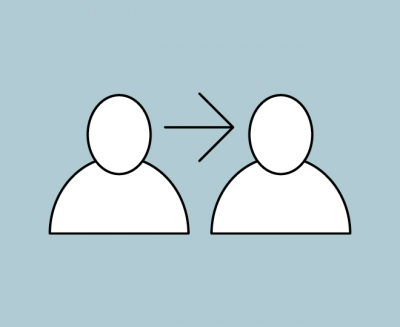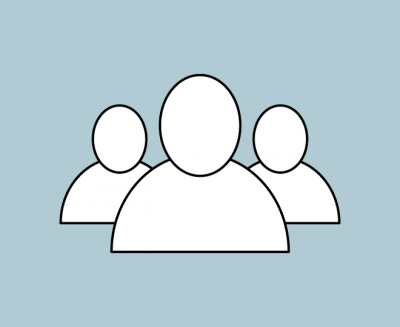CRIG Seminar 2023
The CRIG Seminar of 2023 was a trilogy of virtual events on the theme of Libraries and Social Change.
CRIG Seminar 2023: Libraries and Social Change
The full program can be accessed here.
Day 1. Shaping the future: libraries, technology, and social change
Tuesday 10 October, 9.00 – 11.00am AEDT
Presenter slides and resources suggested and/or used by the presenters:
Decolonising academic production in the age of generative artificial intelligence (AI): challenges and opportunities
Dr Gurnam Singh PhD, NTF, FRSA.
- Presentation slides
- Dudley, M. (2013, May 30). Welcome to The Decolonized Librarian. Decolonized Librarian.
- Itchuaqiyaq, C. U., & Frith, J. (2022). Citational practices as a site of resistance and radical pedagogy: positioning the multiply marginalized and underrepresented (MMU) scholar database as an infrastructural intervention. Communication Design Quarterly Review, 10(3), 10-19.
- Read, S. (2019). The infrastructural function: A relational theory of infrastructure for writing studies. Journal of Business and Technical Communication, 33(3), 233–267.
- Sandy, H.M., & Bossaller, J. (2017). Providing Cognitively Just Subject Access to Indigenous Knowledge through Knowledge Organization Systems. Cataloging and Classification Quarterly, 55(3), 129-152.
Academic Librarians, Artificial Intelligence, and Social Change: How to Harness Technology Innovation and Support Positive Transformation
Professor Lisa M. Given, PhD, FASSA. Director, Social Change Enabling Impact Platform & Professor of Information Sciences, RMIT University
@lisagiven
- Presentation slides
- Bassi, E. (2023, Apr). How is artificial intelligence used in fraud detection? Cointelegraph.
https://cointelegraph.com/explained/how-is-artificial-intelligence-used-in-fraud-detection - Marr, B. (2022, Mar). Top 10 Use Cases For ChatGPT In The Banking Industry. Forbes.
https://www.forbes.com/sites/bernardmarr/2023/03/08/top-10-use-cases-for-chatgpt-in-the-banking-industry/?sh=27292adb2fbf - Naughtin, C., Hajkowicz, S., Schleiger, E., Bratanova, A., Cameron, A., Zamin, T. & Dutta, A. (2022). Our Future World: Global megatrends impacting the way we live over coming decades. Brisbane, Australia: CSIRO.
https://www.csiro.au/en/research/technology-space/data/Our-Future-World - Tanzi, N. (2023, Jan 23). How Can AI Be Used in Libraries? The Digital Librarian.
https://the-digital-librarian.com/2023/01/23/artificial-intelligence-in-the-library/ - Villasenor, T. (2020, Nov). How to deal with AI-enabled disinformation. The Brookings Institution.
https://www.brookings.edu/articles/how-to-deal-with-ai-enabled-disinformation/
Resource mentioned in the chat:
- Wikipedia. (2023, October 13). The Undercommons.
https://en.wikipedia.org/wiki/The_Undercommons
Day 2. Library Practice Leading Social Change
Wednesday 11 October, 3.00 – 5.00pm AEDT
Presenter slides, resources suggested and/or used by the presenters and/or mentioned in the chat + answers to questions not answered in the Q&A segment:
Social Change with Syrian Refugees at Zaatari Camp, Jordan: Libraries, A Cookbook, and Bazaars
Dr Karen E. Fisher, Professor, Information School, University of Washington, and Embedded Field Researcher, UNHCR Jordan
- Dr Fisher’s upcoming book, Zaatari: Culinary Traditions of the World's Largest Syrian Refugee Camp, can be preordered from the publisher and elsewhere
- Donations to Dr Fisher’s project, the Al Za'atari Camp Life Project, can be made through her home institution, the University of Washington:
https://www.washington.edu/giving/make-a-gift/?source_typ=3&source=ISZCLB - Products made by the refugees can be bought through Made51
Please note, Dr Fisher's slides will not be made available as per agreement with the speaker.
Unlocking access to information wherever it is found
Kendall Bartsch, Co-founder & CEO, Third Iron
- Presentation slides
Challenging imperfection: The MeSH experience
Gemma Siemensma, Library Manager, Grampians Health
@gemmas1980
- Presentation slides
- Q: How long did it take to liaise and to submit the suggestions for the new MeSH term?
A: “About 4 or 5 months. Lots of emails!” - Q: Going up against MeSH seems intimidating, curious about how it felt to push against them and if there was anything that helped you feel empowered to do so?
A: “Great question. I never felt the need with “Oceanic Ancestry Group” as a term even though we didn’t like the term, but just the blatant misrepresentation riled us up that we weren’t worried about NLM. Ha ha. And as we did it as a group, they help you feel empowered – the whole “power in numbers” thing!”
RMIT Neurodiverse Study Sessions
Adam Ferris, Academic Skills Advisor (English/Writing), RMIT University
https://www.linkedin.com/in/adam-ferris-b34a07a4/
Matthew Millis, Academic Skills Advisor, RMIT University
https://www.linkedin.com/in/matthew-millis-353a83139/
- Presentation slides
- Presentation Padlet
- Q: Do you find that you need to coordinate the neurodiverse study sessions or are the sessions themselves student-led? (eg co-ordinating pomodoro, etc.)
A: “Our involvement comes in the form of setting up the room (adjusting the lighting and desks, setting up the music, preparing healthy snack), welcoming the students and explaining the structure of the session, and offering assistance for academic skills. And yes, we also coordinate the pomodoro intervals. We have found that students are generally happy to do their own thing and that we do not get overwhelmed with questions about academic skills. Mainly, these comes in the form of answering a few referencing questions or giving some feedback on some writing. We have found that it is necessary to have another space available where we can speak with students one-to-one about their queries so that we do not disturb the other students in the session.”
Social change through advocacy: Introducing La Trobe University Library’s IDEA Network
Lydia Hartwig, Learning Librarian/Gender & sexual diversity stream leader, La Trobe University
https://www.linkedin.com/in/lydia-hartwig95
Georgia Tsioukis, Learning Librarian/IDEA Network Accessibility Stream Leader, La Trobe University
https://www.linkedin.com/in/georgia-marie-tsioukis
- Presentation slides
Please note that the slides from the keynote by Professor Karen E. Fisher and the lightning talk by Trish Hepworth are not shared as per agreement with the speakers.
Day 3. The Always Already of Open Educational Practice (workshop)
Thursday 12 October, 10.00am – 12.00pm AEDT
Danni McCarthy, Senior Lecturer and Open Education and Digital Practice Lead, Deakin University
https://www.linkedin.com/in/danielle-mccarthy-sfhea-085a0650
Resources mentioned in the chat:
- Ackerman, C. E. (2017, June 23). Big Five Personality Traits: The OCEAN Model Explained.
https://positivepsychology.com/big-five-personality-theory/ - Adolpho, K., Krueger, S. G., & McCracken, K. (Eds.). (2023). Trans and Gender Diverse Voices in Libraries. Litwin Books & Library Juice Press.
https://litwinbooks.com/books/trans-and-gender-diverse-voices-in-lis/ - Ahearne, T. (2022, June 14-16). Learning together: four principles for digital literacy learning in libraries [Conference presentation]. VALA 2022, Melbourne, Victoria, Australia.
https://stream.gigtv.com.au/mediasite/Showcase/vala2022/Presentation/0863a2d36b57466a80e880bb9abfac4d1d/Channel/d61ab5375527448ebd9db8353cbc74475f - Bersten, R. (2023, July 31). The multitudes at the margins. Green Agenda, Volume Two.
https://greenagenda.org.au/2023/07/the-multitudes-at-the-margins/ - Gloor, E., & Adams, K. (2023). Building community: DIY punk strategies for the library classroom. College & Research Libraries News, 84(5), 145.
https://doi.org/10.5860/crln.84.5.145 - McGregor, H. (2023, June 12). A manifesto in progress. Hannah McGregor.
https://www.hannahmcgregor.com/blog/blog-post-title-one-cry68 - Roberts, P. (2015). Chapter four: Paulo Freire and the Idea of Openness. Counterpoints, 500, 79–91.
http://www.jstor.org/stable/45178205 - Weiss, J. (n.d). Guest post: Citation is a gift: “Punking” accounting in #Hautalk. Footnotes.
https://footnotesblogcom.wordpress.com/2018/07/07/guest-post-citation-is-a-gift-punking-accounting-in-hautalk/ - (2023, May 15). Pedagogy of the Oppressed.
https://en.wikipedia.org/wiki/Pedagogy_of_the_Oppressed





